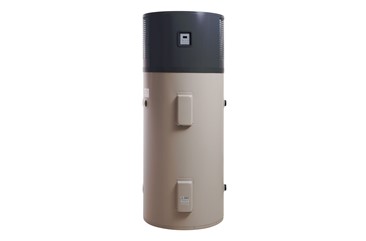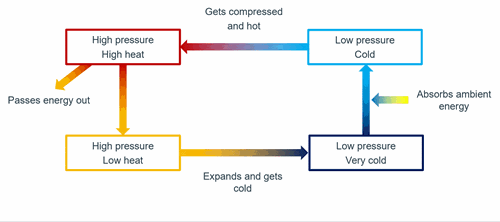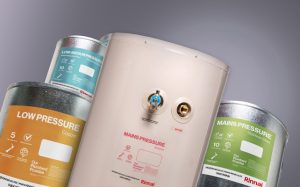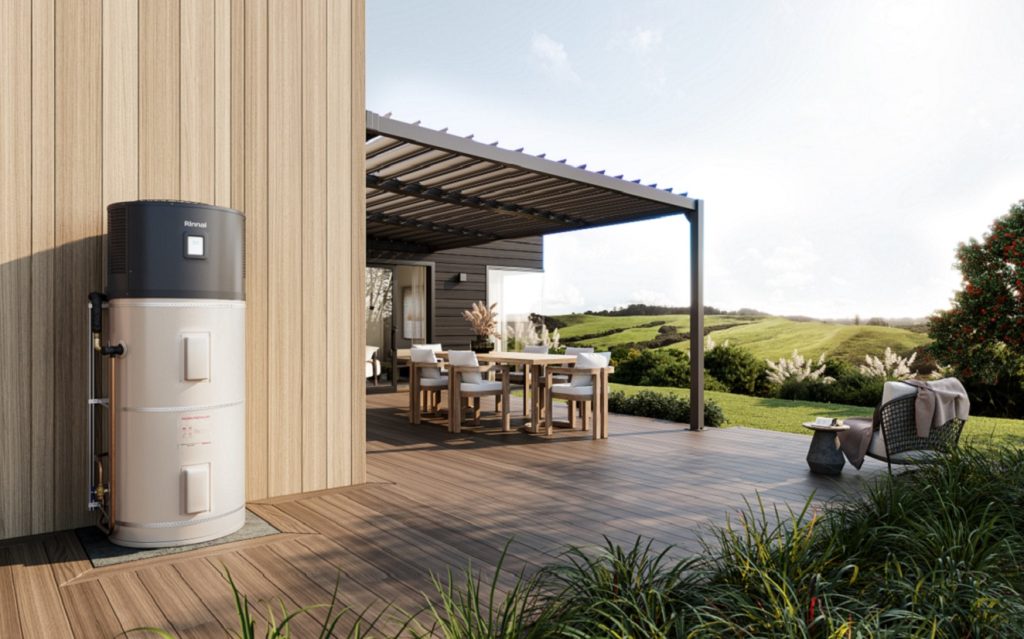Hot water heat pumps are innovative water-heating technologies that are helping to address environmental concerns and improve energy efficiency. They use heat pump technology to offer sustainable and cost-effective hot water in an era focused on the environment and cost of living.
Hot water heat pumps are a smart choice for heating water. They help homeowners and businesses reduce their carbon footprint and save energy. This article takes a closer look at hot water heat pumps, how they work, what’s good about them, and things to think about if you’re thinking of getting one.
How does a Hot Water Heat Pump Work?
Hot water heat pumps, sometimes called hybrid heat pumps or heat pump water heaters, are designed to efficiently heat water for domestic and commercial use.
The Rinnai HydraHeat® hot water heat pump and the HydraHeat® Split were designed right here in the Rinnai R&D lab specifically for New Zealand conditions – and are manufactured in our factory in Mangere in Auckland.
 They operate on the same principle as air source heat pumps, which extract heat from the surrounding air. This warms the water in the cylinder which is then supplied into your home or commercial space.
They operate on the same principle as air source heat pumps, which extract heat from the surrounding air. This warms the water in the cylinder which is then supplied into your home or commercial space.
This neat process involves the following key steps:
1. Heat Absorption: The heat pump draws in ambient air from its surroundings, even in colder climates.
2. Heat Exchange: The heat pump extracts heat from the air and transfers it to a refrigerant fluid, which evaporates into a gas.
3. Compression: The refrigerant is compressed, which increases its temperature.
4. Heat Release: The hot, pressurised refrigerant releases its heat into a heat exchanger, which transfers the heat to the water.
5. Condensation: The refrigerant changes back to its liquid state and cycles back to the beginning of the process.
| Energy cannot be created or destroyed; it can only be exchanged. | |
| Energy (heat) will always move from where it is, to where it is not – never the other way around. | |
| The greater the difference in temperature, the greater the energy exchange, or heat exchange. |
Transfer of Energy Explained:
 This efficient cycle allows hot water heat pumps to make hot water using less energy than regular water heaters.
This efficient cycle allows hot water heat pumps to make hot water using less energy than regular water heaters.
Benefits of Hot Water Heat Pumps
| 1. Energy Efficiency | Hot water heat pumps are significantly more energy-efficient than traditional electric or gas water heaters. They use renewable heat sources like air, which require less electricity to heat water. This leads to reduced energy consumption and lower bills. |
| 2. Save Money | Hot water makes up 30-40% of a domestic hot water bill – about $125 per person per year. A hot water heat pump should save an average home 60-75% of their hot water cost, depending on time of year and location. |
| 3. Environmental Impact | Hot water heat pumps use heat in the air, reducing greenhouse gas emissions and dependence on fossil fuels. This makes them a viable choice for environmentally conscious individuals and organisations striving to minimise their carbon footprint. |
| 4. Sustainable | Hot water heat pumps are regarded as the most environmentally friendly hot water solution in the market. |
| 5. Versatility | Hot water heat pumps work well in different climates, even cold ones, because they don’t only depend on outdoor temperature changes. This adaptability makes them suitable for a wide range of locations – including everywhere in New Zealand. |
| 6. Low Maintenance | These systems require minimal maintenance, primarily involving occasional checks and cleanings. This ease of maintenance adds to their appeal for both homeowners and businesses. |
Things To Consider Before Buying A Hot Water Heat Pump
1. Installation: Proper installation is crucial for the optimal performance of a hot water heat pump. We recommend hiring an experienced technician. This ensures that the heat pump is the correct size, placed correctly, and integrated with the existing plumbing.
2. Space Requirements: Hot water heat pumps require adequate space for proper air circulation and heat exchange. Homeowners or businesses should evaluate available space before installation.
3. Upfront Costs: While hot water heat pumps offer long-term savings, the initial investment can be higher compared to traditional water heaters.
Hot water heat pumps are a prime example of how innovative technologies can reshape our approach to energy consumption. These heat pump systems offer a sustainable alternative to regular water heaters. They use renewable heat sources and minimize environmental impact. They are a great option for people seeking sustainable alternatives.
From energy savings to reduced greenhouse gas emissions, the benefits of choosing a hot water heat pump extends to both our wallets and the planet.

















